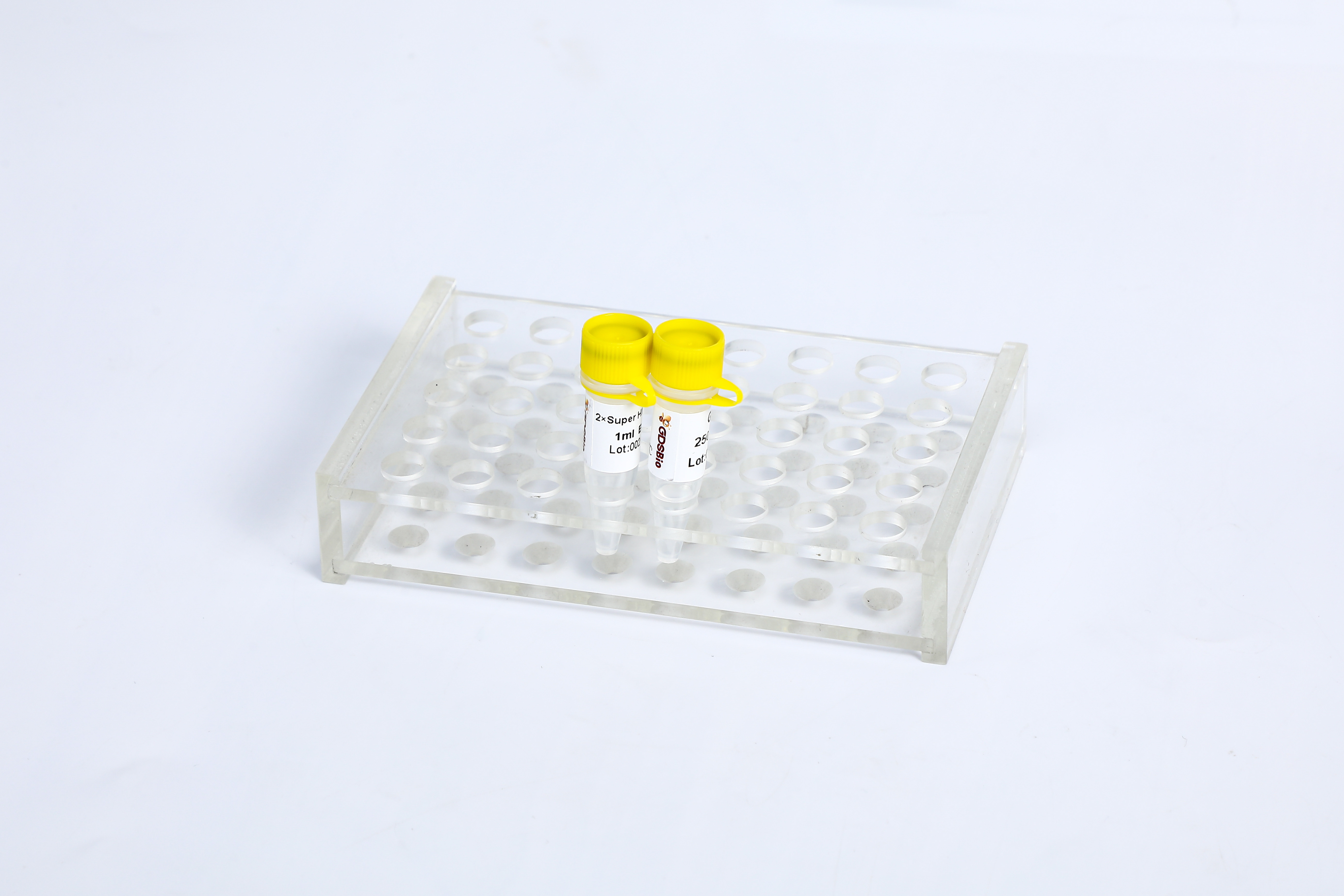DNase I, RNase-Free, HC E1018-A
DNase I, RNase-Free, HC
Cat. No./Spec.: E1018-A/1,000 U
Concentration: 50 U/µL
Product Description
DNase I (without RNase) is an endonuclease that can cleave both single-stranded and double-stranded DNA. It hydrolyzes phosphodiester bonds, producing single deoxyribonucleotides and oligodeoxyribonucleotides with 5'-phosphate groups and 3'-OH groups.
The activity of this enzyme is strictly dependent on Ca2+ and is activated by Mg2+ or Mn2+ ions. In the presence of Mg2+, DNase I cuts each strand of dsDNA in a statistically random and independent manner. When Mn2+ is present, the enzyme almost cuts both DNA strands at the same site, resulting in DNA fragments with blunt ends or overhangs of one or a few nucleotides.
Components
Component | E1018-A |
DNase I, RNase-Free, HC (50 U/µL) | 20 µL |
10X DNase I Buffer (Mg2+ Plus) | 1 mL |
EDTA (50 mM) | 1 mL |
Storage Condition & Shelf Life
Store at -20°C.
Source
Recombinant E. coli strain containing the cloned gene encoding bovine DNase I.
Unit Definition
A unit is defined as the amount of enzyme required to completely degrade 1 µg of plasmid DNA within 1 minute at 37°C.
Enzyme activity is determined in the following mixture: 10 mM Tris-HCl (pH 7.5 at 25°C), 2.5 mM MgCl2, 0.1 mM CaCl2, and 1 µg of pUC19 DNA.
One unit of DNase I is equivalent to 0.3 Kunitz units.
Features
- Recombinant enzyme
- Purified from a non-animal host, with low levels of endogenous RNase
Scope of Application
- For the preparation of DNA-free RNA.
- To remove template DNA after in vitro transcription.
- To prepare DNA-free RNA before RT-PCR and RT-qPCR.
- In conjunction with DNA Polymerase I for DNA labeling through nick translation.
- For the study of DNA-protein interactions using DNase I (RNase-free) footprinting.
- To generate a library of randomly sheared DNA insert fragments. Reaction buffer containing Mn2+ is used.
 Tel: +86 20 31600213
Tel: +86 20 31600213  Sales EMail: order@gdsbio.com
Sales EMail: order@gdsbio.com 






